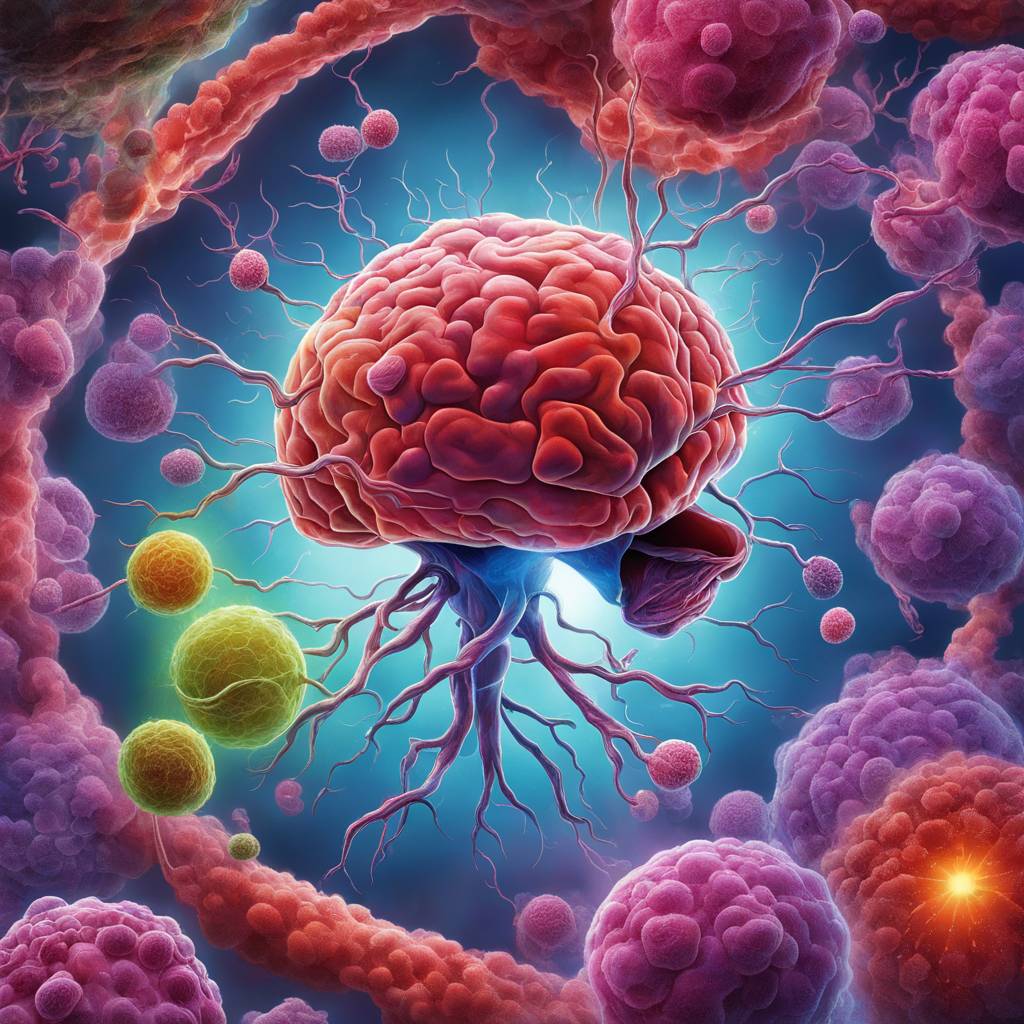A recent study conducted by scientists at St. Jude Children’s Research Hospital has shed light on a potential new approach to treating cancer. The researchers focused on rhabdoid tumors, an aggressive form of cancer that lacks a key tumor suppressor protein. By targeting a little-studied protein called DCAF5, which is essential to rhabdoid tumors missing the tumor suppressor protein SMARCB1, they were able to reverse the cancerous state of the cells. Deleting or degrading DCAF5 caused the cancer cells to revert to a more normal state, suggesting a novel strategy for treating cancer by returning malignant cells to an earlier, non-cancerous state. These findings, which were published in the journal Nature, have far-reaching implications for cancer therapy.
Typically, in cancers where a tumor suppressor protein is missing, there is no clear target for drug therapy. The loss of tumor suppressors is a common occurrence in cancer, making it challenging to develop effective treatments. The St. Jude researchers discovered that by targeting DCAF5, a protein critical to rhabdoid tumors missing SMARCB1, they could reverse the cancer state. Using the Dependency Map (DepMap) portal, they identified DCAF5 as a top dependency in rhabdoid tumors, providing a potential target for therapy. The successful reversal of cancer cells to a non-cancerous state by deleting or degrading DCAF5 highlights the promise of this new approach in treating aggressive cancers.
The study revealed that in the absence of the tumor suppressor protein SMARCB1, DCAF5 recognizes the SWI/SNF complex, a group of proteins involved in chromatin regulation, as abnormal and destroys it. However, when DCAF5 is removed, the SWI/SNF complex reforms and retains its ability to open chromatin and regulate gene expression. This restoration of normal function in the absence of SMARCB1 led to the reversal of the cancer state in the cells. By targeting DCAF5 and preventing it from destroying the SWI/SNF complex, the researchers were able to reactivate gene programs that prevent cancer, offering a potential therapeutic avenue for treating aggressive tumors.
From a therapeutic perspective, the findings of this study have significant implications for cancer treatment. DCAF5 belongs to a family of proteins that have been shown to be drug targetable, offering a potential avenue for targeted therapy. The researchers demonstrated that mice lacking DCAF5 did not experience any negative health effects, suggesting that targeting this protein could selectively eliminate cancer cells without harming healthy cells. By targeting DCAF5 and reversing the cancer state in cells, the researchers are exploring new opportunities for developing more precise and effective cancer therapies that avoid the off-target toxicity associated with traditional treatments like radiation and chemotherapy.
The discovery of a new approach to reversing cancer by targeting the quality control protein DCAF5 has opened up exciting possibilities for treating a variety of cancers driven by the loss of tumor suppressor proteins. The researchers believe that their findings provide a proof of principle for reversing, rather than killing, cancer cells by restoring them to a more normal state. This approach could have broad implications for developing targeted therapies for cancer, offering a potentially safer and more effective alternative to conventional treatments. By exploring the therapeutic potential of targeting DCAF5 and other related proteins, the researchers are paving the way for novel strategies to combat cancer and improve patient outcomes in the future.













